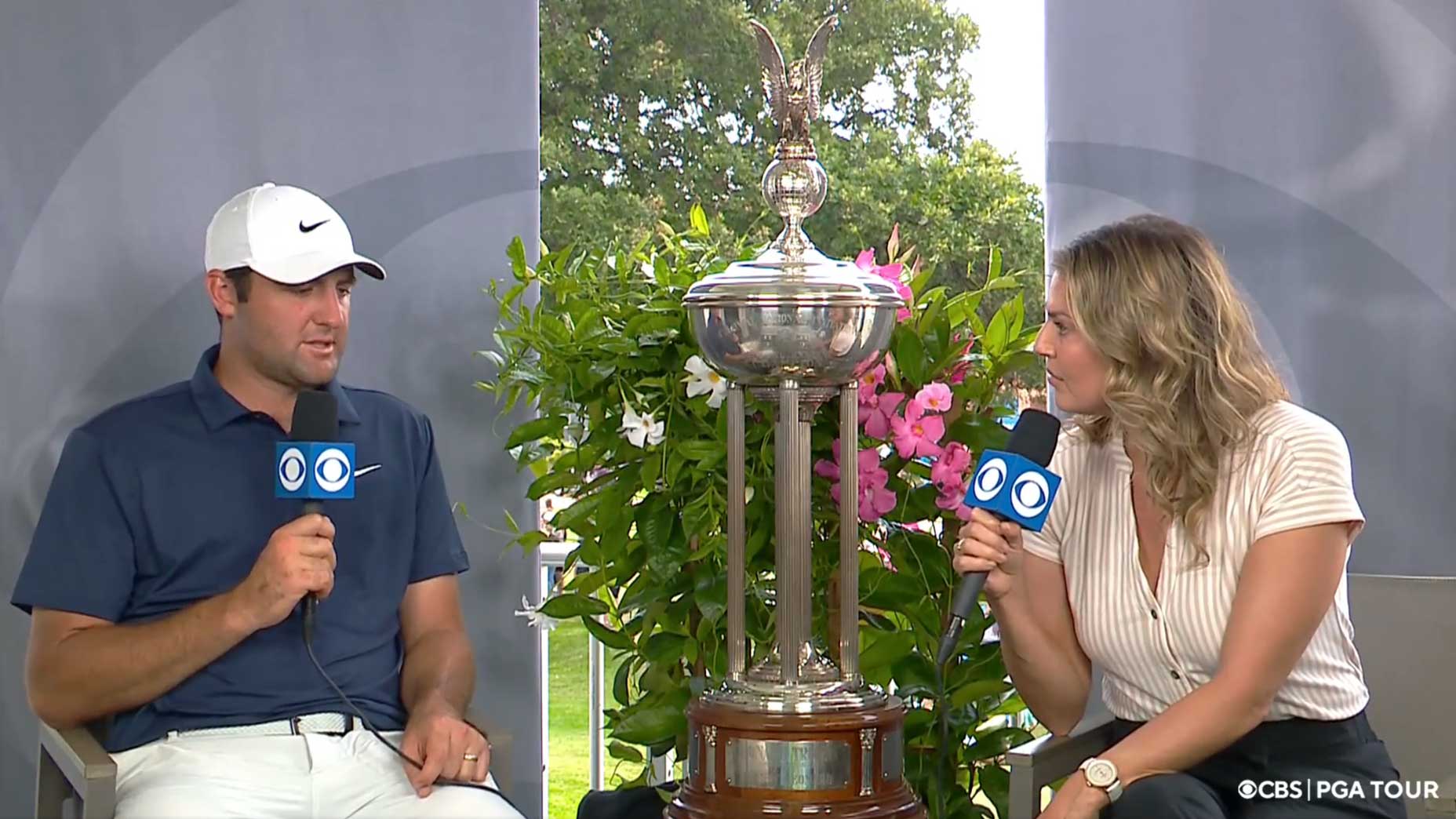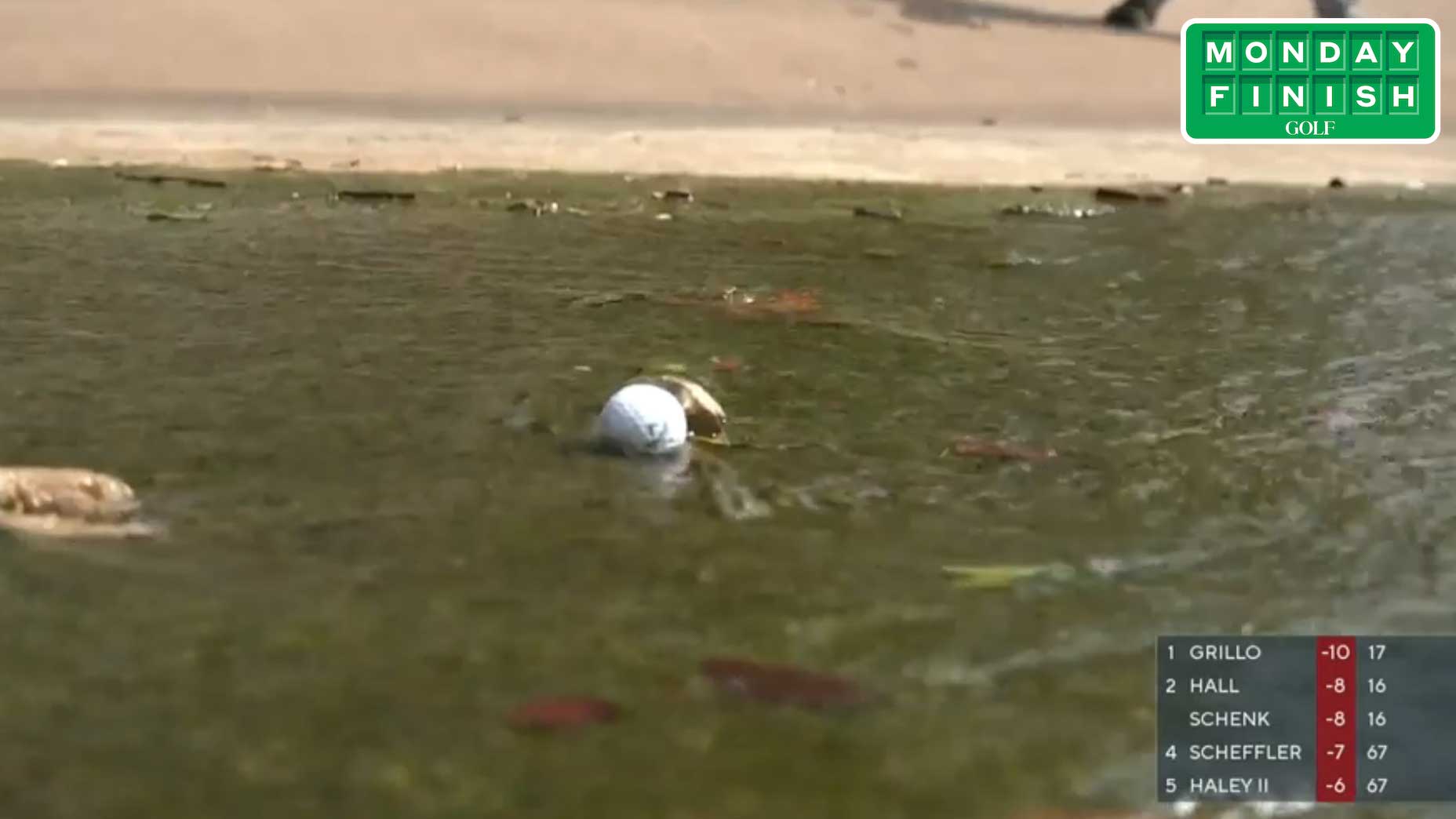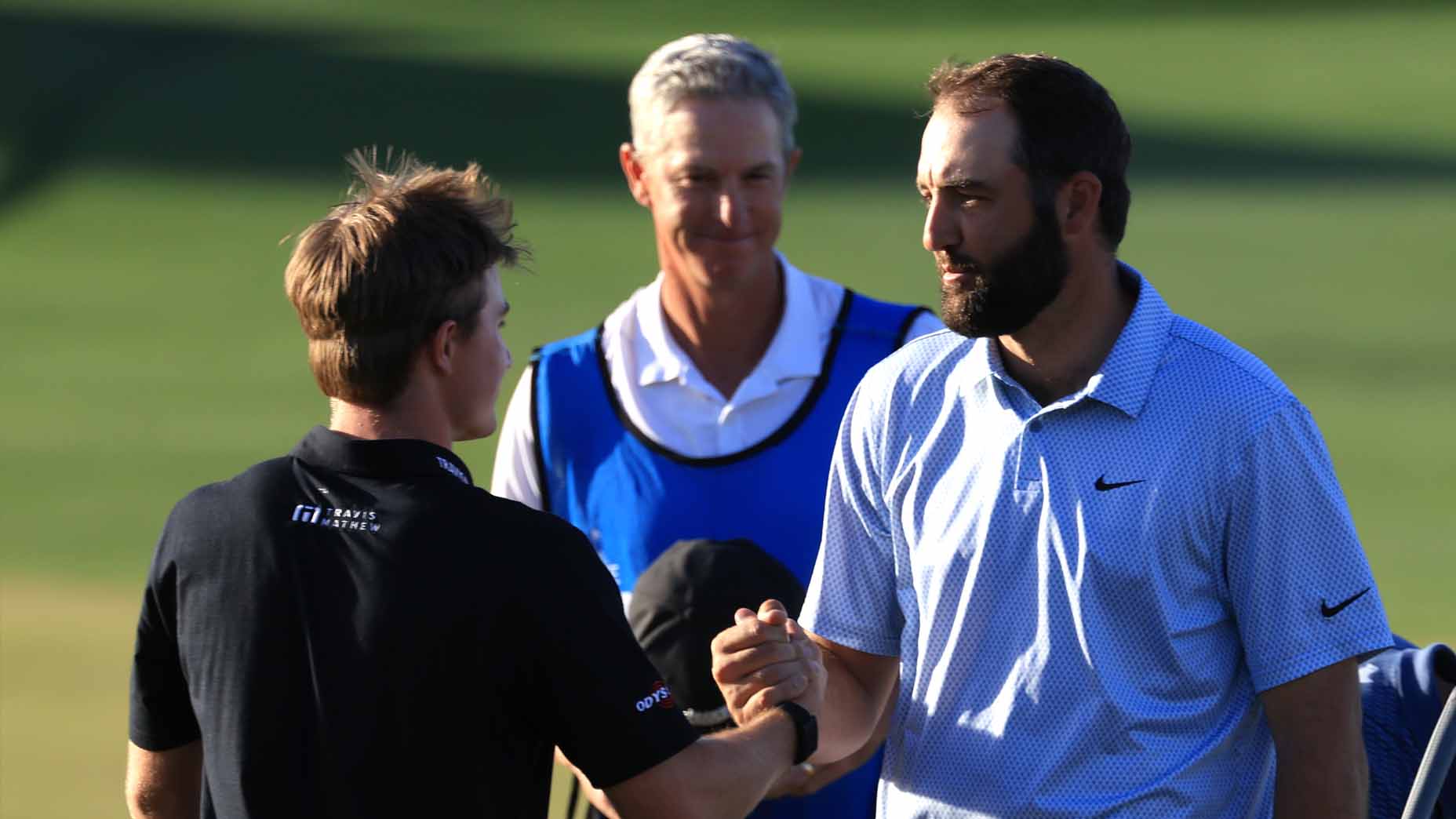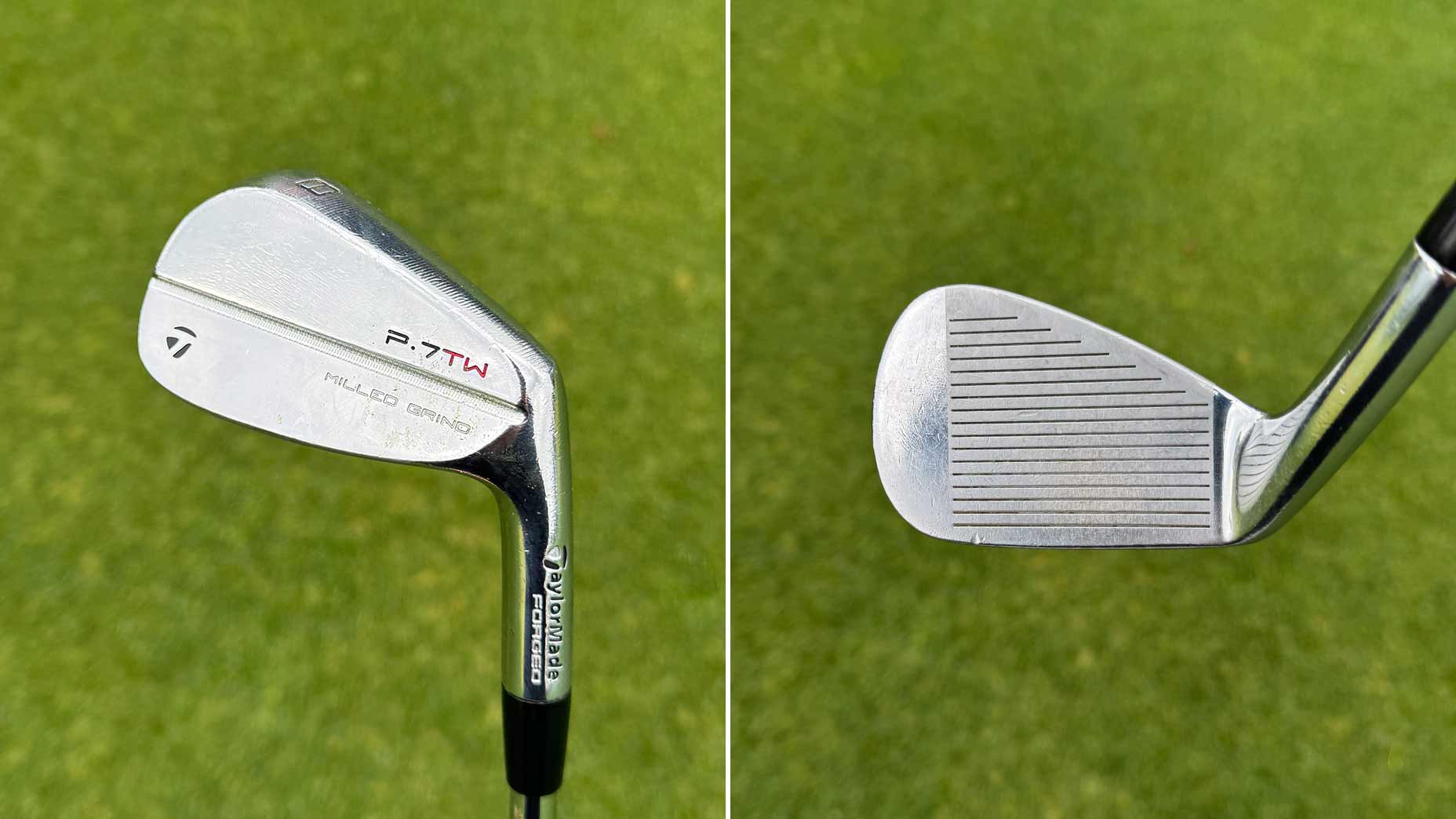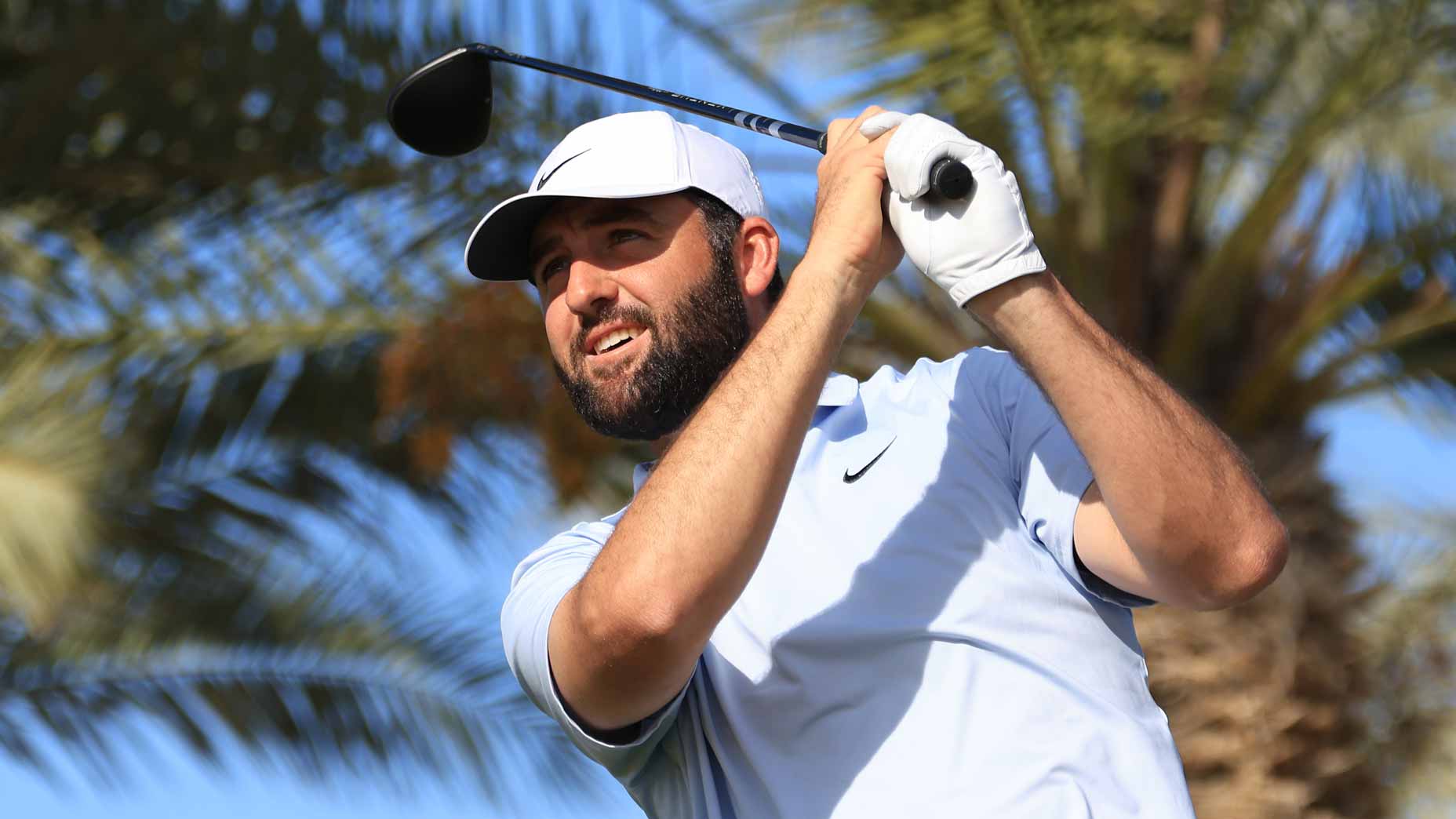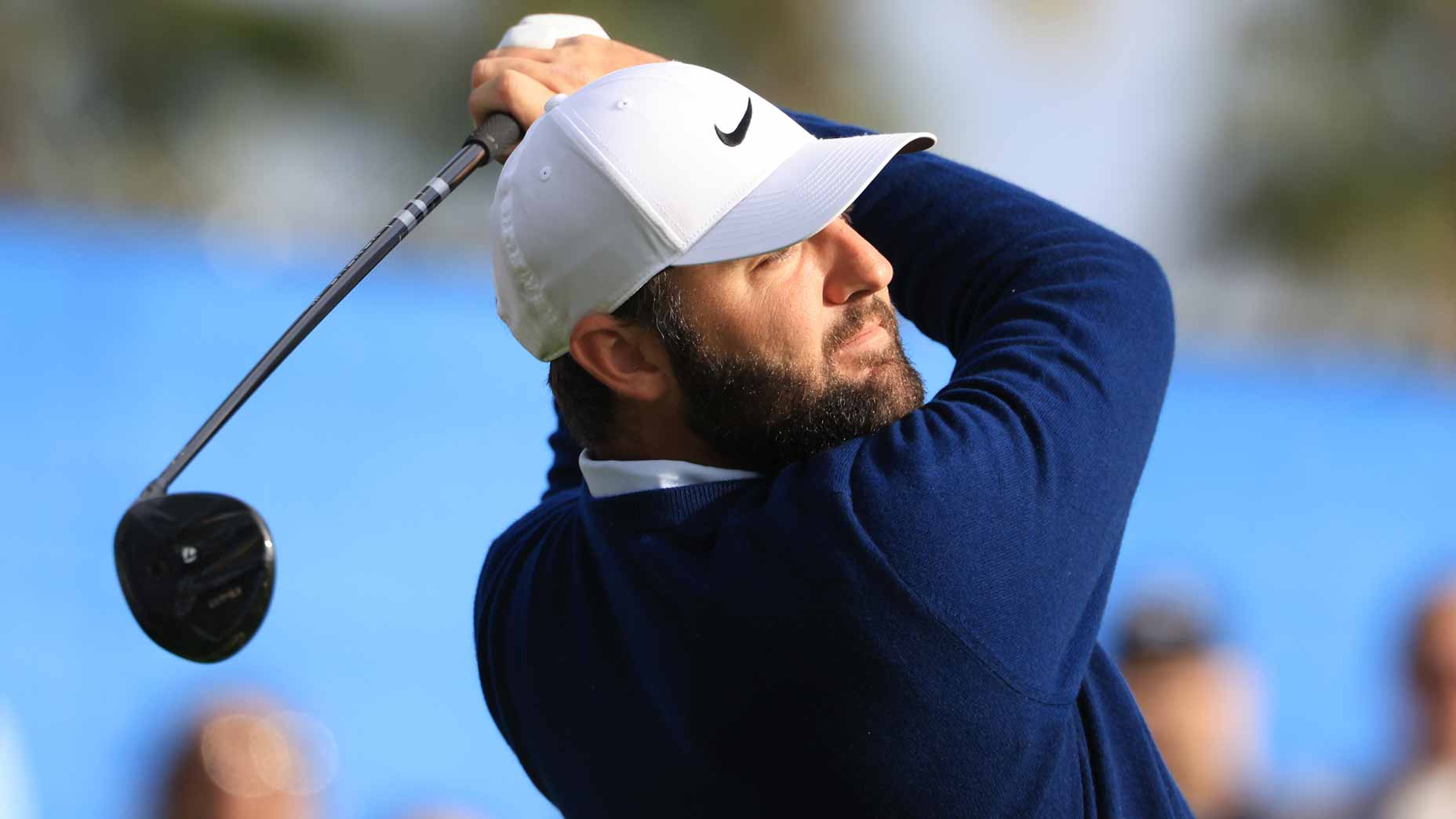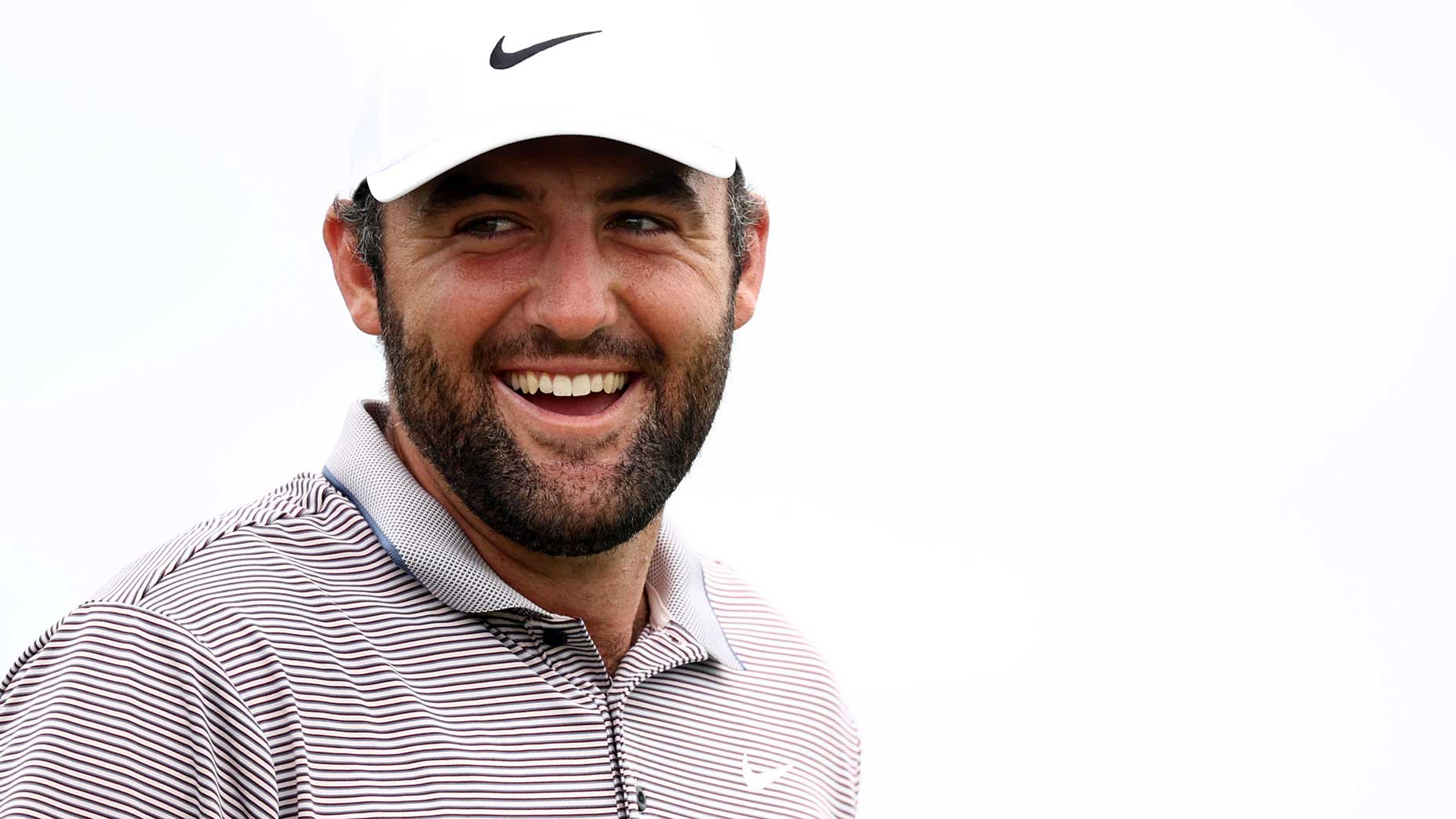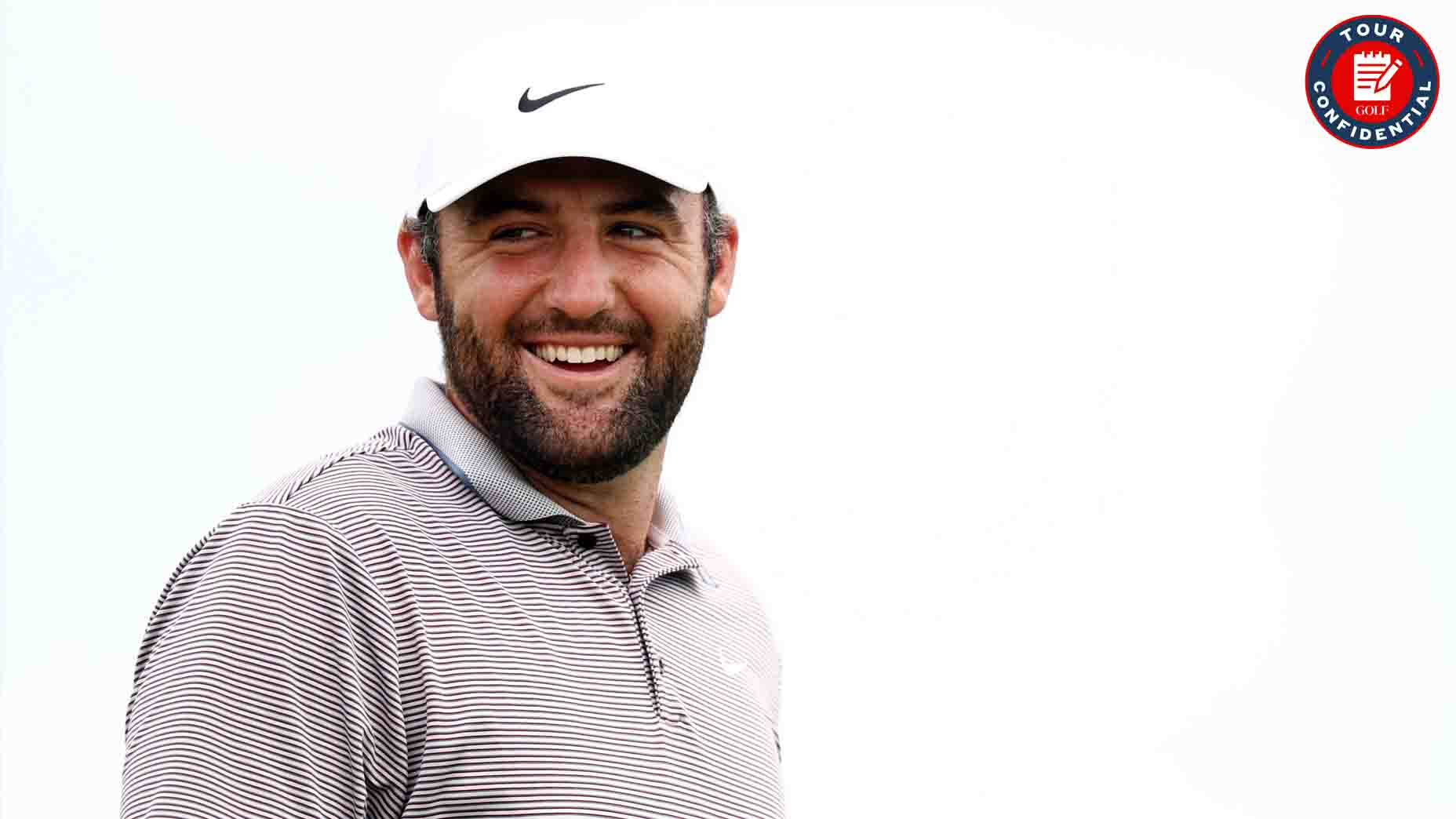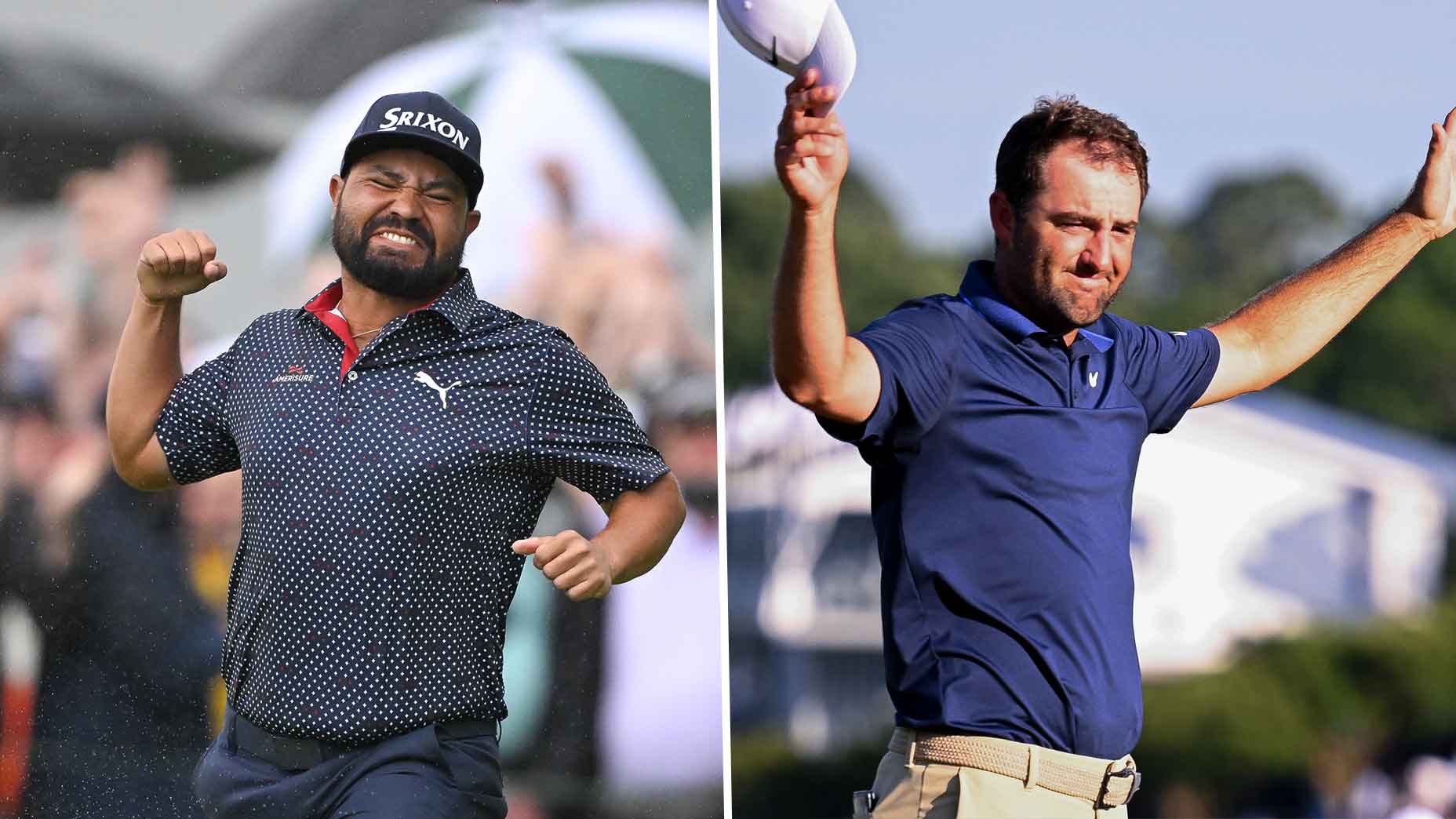Ostensibly, the highlight of Sunday’s Charles Schwab Challenge broadcast was Emiliano Grillo’s golf ball floating, slow-motion and in the wrong direction, along a shallow stream housed by a cement ditch. It was a metaphor for the two-stroke lead he’d taken to the 18th tee, which was visibly taking a turn for the worse. It was also a notably ridiculous — and hilarious — finish to a big-time golf tournament. CBS was there, dramatically tracking the float in real time. It was tremendous.
Emiliano Grillo out here playing the meanest mini golf hole of all time pic.twitter.com/utzUsMm3Rp
— Dylan Dethier (@dylan_dethier) May 28, 2023
But I was taken by a moment on the broadcast from just a short time earlier, a moment when CBS tossed to Amanda Renner, who was sitting with Scottie Scheffler in their broadcast tent. I thought the interview that followed hinted towards three interesting things about the golf we’re watching — one about CBS and two about Scottie.
1. Amanda Renner’s role has expanded.
Per our Hot Mic correspondent James Colgan, CBS introduced this set last year, giving Renner more airtime beyond brief post-round stand-up interviews. In recent weeks we’ve seen her bring in big names, including then-World No. 1 Jon Rahm, to help call the action. Those have been terrific each time. They’ve also represented a movement to get different types of real-time analysis; this is the same outside-the-box thinking that has yielded mid-round player walk-and-talks.
This Scheffler interview stood out not because of her first two questions — which covered Scheffler’s final-round ace at No. 8 — but because of her third. She mentioned Scheffler’s off-the-charts numbers in strokes gained from tee to green before getting to the tougher question:
What is giving you so many problems on these greens?
Scheffler didn’t seem offended by the question. He didn’t get defensive. Instead he allowed us a peek into his mind, an area usually kept under lock and key.
“Y’know, it just seems like the hole looks small,” he said. (Yeah, this counts as an admission of vulnerability. The bar isn’t set super high.) “Yeah, that’s pretty much it.”
But that wasn’t it. Scheffler might be the best golfer in the world, but he’s still a golfer, which means if you invite him to talk about a golf-related topic that’s weighing on his mind, he is physiologically incapable of avoiding it.
“I feel comfortable over the ball,” he continued. “I feel like at the Masters this year I was uncomfortable over my putts. And I really struggled that week the first two days. The things that I’m working on, I feel a lot of progress. Last week was definitely a lot of progress and this week I feel like I hit a lot of quality putts. I’m definitely improving inside 10 feet, which has been an area of emphasis for me. I can’t explain it. It was a bit frustrating this week, because I felt like I was hitting good putts. They just weren’t falling in. The hole was kind of dodging. It felt like I was putting towards a moving cup. But I like what I’ve been working on and I’m starting to feel the ball coming off the blade, and — yeah.”
Scottie's second hole-in-one in PGA TOUR play 🙌
— Golf on CBS ⛳ (@GolfonCBS) May 28, 2023
Our World No. 1 spoke with @Amanda_Balionis following his final round @CSChallengeFW pic.twitter.com/ypgzziiwVC
The question was compelling because of the answer it yielded. But it was also compelling because of what it represented. We’re used to real-time analysis from the broadcast team and we’re used to post-round debriefs from players to on-site journalists. But post-round TV interviews are usually restricted to smaller-picture stuff. Like, Tell me about your birdie at 10. Or What does this tournament do for you moving forward? I’m not suggesting Renner doesn’t typically ask tough questions — in the right circumstances, she has and she does! — but her role hadn’t previously asked for it. The question of Scottie Scheffler’s ball-striking vs. his putting is among the most pressing in the game and was worth exploring. TV viewers learned something interesting as a result.
Which brings us to No. 2…
2. Scottie Scheffler is hitting the heck out of the ball.
There’s plenty of luck involved in making a hole-in-one, but on Sunday Scheffler’s ace felt deserved. He was hitting the ball so much better (and more accurately) than anyone else in the field that it made sense for one of his arrows to find its bullseye.
Because the field averaged 3.16 strokes on that par-3 8th, Scheffler gained 2.16 shots with a single swing. That was part of a weeklong effort in which he gained 15.01 strokes from tee to green, meaning he was 15 shots better than field average before getting a putter in his hand.
Just how good is gaining 15 shots from tee to green? It’s only happened three times this season — and it’s been Scheffler doing the gaining each time. His runaway victory at the Players Championship featured an incredible 17.17 strokes gained from tee to green, while his runner-up finish at last week’s PGA Championship featured 15.29. (You can see more detail in the tweet below.)
Great nugget from @RickRunGood in his excellent newsletter today on elite tee-to-green play. You should subscribe here –> https://t.co/LgvUGukvDx pic.twitter.com/kaAPRwg4Ll
— Kyle Porter (@KylePorterCBS) May 30, 2023
Further ball-striking analysis from golf data guru Andy Lack reveals unprecedented flushing.
Truly hard to put into perspective how much of a flusher Scottie Scheffler is. He has now gained over 7 strokes ball-striking in 10 straight starts.
— Andy Lack (@adplacksports) May 29, 2023
I cannot find another instance since the inception of strokes gained where anyone else has ever done this, not even Tiger
Scheffler’s season-long numbers are ridiculous. He’s first in total strokes gained. He’s first in strokes gained from tee to green. He’s first in strokes gained off the tee, somehow ranking inside the top 25 in both driving distance and driving accuracy. He’s second in strokes gained approaching the green, just four-thousandths of a stroke behind irons whiz Collin Morikawa (1.075 to 1.071). And he’s eleventh in strokes gained around the green, making him the only top-10 player in the world inside the top 20 in that category. He’s incredibly, historically well-rounded.
Until he gets on the green.
So just how bad is Scheffler’s putting, anyway?
3. Scheffler’s putting woes aren’t as bad as you’d think.
It’s all relative. Compared to the otherworldly rest of his game, Scheffler’s putting is no bueno. Compared to the putting season he had last year, it’s a letdown. But compared to the PGA Tour at large? It’s just about average. And when you look at Scheffler’s first two years on Tour, this is remarkably close to his baseline.
Let’s get more specific. This season Scheffler is losing 0.066 strokes on the greens, a number that puts him 114th out of 198 players. He’s losing three-quarters of a shot per round to other top-10 players like Max Homa (+.741 SG: Putting), Jon Rahm (+.681) or Xander Schauffele (+.608), but just seven hundredths to the average Tour pro.
Last year, Scheffler’s numbers were better. He finished 58th in strokes gained putting, gaining an average of .202 strokes on the field during a Player-of-the-Year-caliber season. (He was just 37th in strokes gained off the tee, though, and fourth tee to green.)
But if you look to the 2020-21 season (107th, -.023) or 2019-20 (117th, -.053) Scheffler’s numbers are nearly identical to this year’s.
So why the hyper-focus on his putting struggles? There’s our human tendency to focus on the negative over the positive, for one thing. (Sorry about that, Scottie.) But there’s also the simple fact that he’s spent a lot of time on our TV screens, which means we’ve had extra exposure to the best and worst of his golf game.
Still, it’s not like he’s a putting trainwreck every week. Scheffler has played 12 events in 2023. Per DataGolf, he’s lost more than 0.1 strokes per round in just two of those events. But both were pretty rough — one at the Masters (-1.00) and the other at this week’s Charles Schwab (-1.05). But in both cases he hit it so well that he still finished inside the top 10, which meant we got a front-row seat to his misses.
Phil’s tweets, Grillo’s floating ball, a Ryder Cup surprise | Monday FinishBy: Dylan Dethier
One interesting wrinkle is that Scheffler hasn’t been three-putting much at all. He’s three-putted just 11 times in 1,008 holes this season, the third-lowest percentage on Tour. His “approach putts” finish 1 foot, 11 inches from the cup, second-best on Tour. He just isn’t making much. His putting isn’t preventing him from contending. It just isn’t helping him get over the line.
To that point, he’s finished inside the top 12 in each of his 12 starts this year, including a win at the WM Phoenix Open where he gained 1.09 strokes on the greens. This brings us back to the interview, and the only moment Scheffler did get a bit defensive. That came when he was asked about patience as his game comes back into form.
“‘Game coming back into form’ is, I think, a bit of a stretch,” he said, to which Renner jumped in to clarify she only meant putting. All good. Scheffler said he’s trying to stay the course.
“My philosophy has always been to stick with something and see it through, and with my putting sometimes I felt like I bounced around a little bit with different things. I’ve been really grinding on my setup probably for the past year, probably more like year and a half, and I’ve seen some really good results. It’s something where as I improve I’ll continue to see more consistent results. I’ve had a few off weeks with the putter but I’ve still given myself chances to win golf tournaments, which is definitely a good bit of confidence moving forward.”
Scheffler hopes the hole will start looking bigger. Until then?
I’d recommend more holes-in-one.
